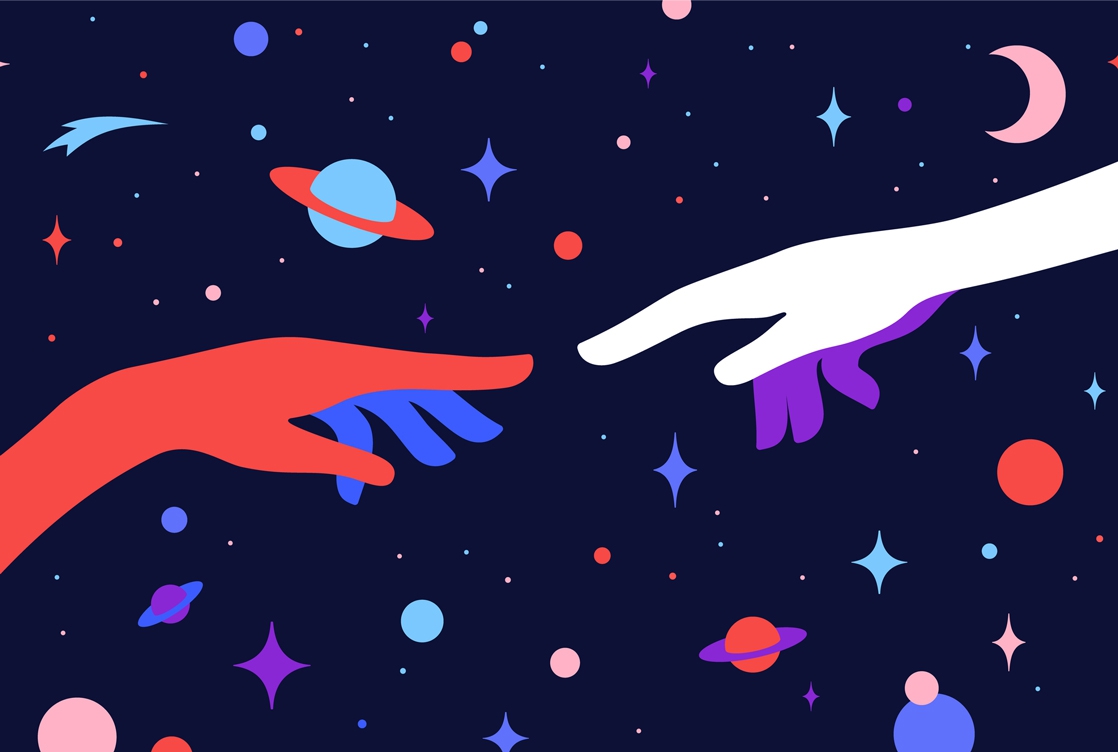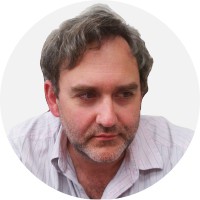The views expressed in our content reflect individual perspectives and do not represent the authoritative views of the Baha'i Faith.
In the study of our universe, physicists have managed to construct models that describe the behavior of things, from fundamental particles to galaxies. Of course, large and obvious parts are still missing, like dark matter and energy or how quantum mechanics works with gravity. And at first glance, there doesn’t seem to be anything that indicates the existence of will — our free will or the will of a Creator.
Physicist, popular author, and blogger Sabine Hossenfelder recently argued that free will is non-existent and that everything that determines the actions you make can be traced to physical processes. Thus, there is really no free will, as everything is determined by something else.
While this is true, after watching the video, I came away feeling that there might be more to the whole concept of “free will,” although she does admit to the possibility of redefining this term. It felt as if I were to tell you that there is no such thing as a fluid since what we experience as fluid is really many small particles interacting with each other. This is true, but as one increases the number of molecules under consideration, their average behavior is modeled better as a fluid.
At some point, using a fluid model perfectly describes the physics at the necessary scale and is a much better description since it reduces the number of variables one needs to keep track of. The experience and dynamics of such a fluid is real, and with it, one can make real physical predictions. A similar analogy can be drawn with the concept of “will.” We can argue that there is no will — just physical processes; but for certain systems at a large enough scale, the description of nature is better described by using will, which acts as a causal agent in the universe.
The explanation Abdu’l-Baha, the son of Baha’u’llah, the prophet and founder of the Baha’i Faith, gave on this topic frames my thinking on this:
“Certain matters are subject to the free will of man, such as acting with justice and fairness, or injustice and iniquity—in other words, the choice of good or evil actions. It is clear and evident that the will of man figures greatly in these actions. But there are certain matters where man is forced and compelled, such as sleep, death, sickness, failing powers, misfortune, and material loss: These are not subject to the will of man and he is not accountable for them, for he is compelled to endure them. But he is free in the choice of good and evil actions, and it is of his own accord that he performs them.”
Indeed, in nature, we find that two general sorts of dynamics operate in conjunction. One is deterministic, following established laws like Newton’s laws, the force laws of magnetism, gravity, etc. The other is probabilistic, where the source of dynamics is either unknowable or just random (depending on your philosophical view). Both these dynamics are ultimately rooted in quantum mechanics. In his 1932 book “Mathematical Foundations of Quantum Mechanics,” famous physicist John von Neumann explained these two kinds of physics, which are described by quantum mechanics. The first involves a non-deterministic process caused by a “measurement” that he termed “non-causal,” and the second he termed “causal,” as it involves the deterministic and reversible physics that governs the evolution of the state function.
In a higher mammal, one can see that what is considered “will” is most likely the result of both of these sorts of physics. While the details of how and to what extent the quantum world’s randomness is seen in the macroscopic expression of will are debated, it should contribute in some part beyond a doubt. This would especially be true if one believes that such neurological systems are, for certain stimuli, highly sensitive to initial conditions in a chaotic system or one living at the edge of it.
In Dr. ‘A. M. Dávúdí’s book “Human Station in the Baha’i Faith Selected Sections: Philosophy and Knowledge of the Divine,” he proposed a very intriguing idea that defines the non-existence of determinism as something that might cast doubt on the purely materialistic notion of existence and consciousness:
“The materialists consider ‘Matter’ as the primary substance of human life and deny the existence of a non-material and non-physical soul. They consider man as purely physical being and reject the existence of willpower. Therefore, if we dispute and disprove the concept of “determinism” we will have shaken the very foundation of materialist beliefs.”
The lack of “determinism” implies that something from a purely physical-causative perspective has an element of randomness, as we observe the non-deterministic measurement process. That is, things can occur for no known physical reason, and one cannot point to any hidden physical variable that could remove the randomness or predict the behavior. When we say something is random, we admit a lack or limit on knowledge. A person of faith would argue that while there might not be a physical reason, there is a divine reason, and the world’s major religions teach that nothing transpires without God’s permission.
I believe that the same thinking can apply when considering both processes expressed in nature, collectively expressing will in the same way that these agents manifest will in human consciousness. Baha’u’llah described nature as “the embodiment of My Name, the Maker, the Creator… Nature is God’s Will and is its expression in and through the contingent world.”
Thus, the act of creation, which most religions understand as a miraculous event, operates via the agency of nature — and indicates that divine will is perennially creating. It is both subtle, active, and miraculous.
These statements also imply that in studying nature, we are coming to better understand God’s will. A careful study of nature’s physical laws does not preclude the appearance of events that might be regarded as miraculous. Thus, while extremely anomalous events are highly unlikely, they are always possible. One might argue that the very operation of every physical event represents a profound miracle.
Following Baha’u’llah’s explanation, one could say that nature as an expression of God’s will involves the operation of both of the probabilistic (or unknowable) events and deterministic laws, and it is only through the operation of both that the observed order of the universe arises. Both the structure of the universe and the evolution of life on our planet are explainable by these processes. The diversity and complexity of life is due to seemingly random mutations coupled with the laws of natural selection, which together drive evolution.
That these processes — as an expression of the will of God — produce such beauty and complexity is the real wonder and miracle of our existence.
















Comments
Sign in or create an account
Continue with Googleor